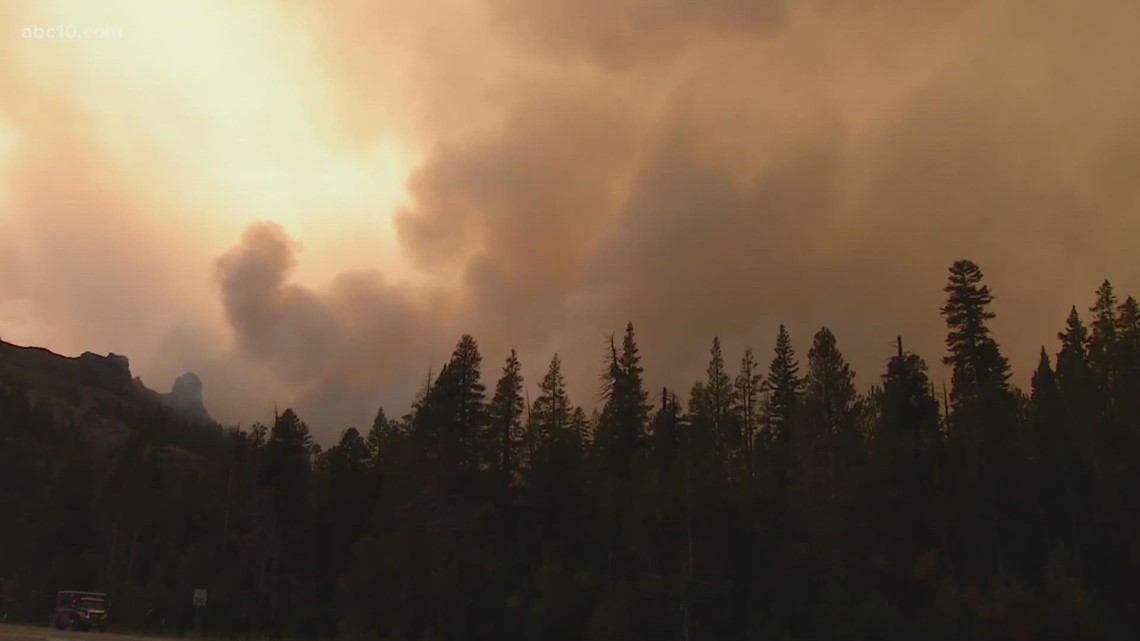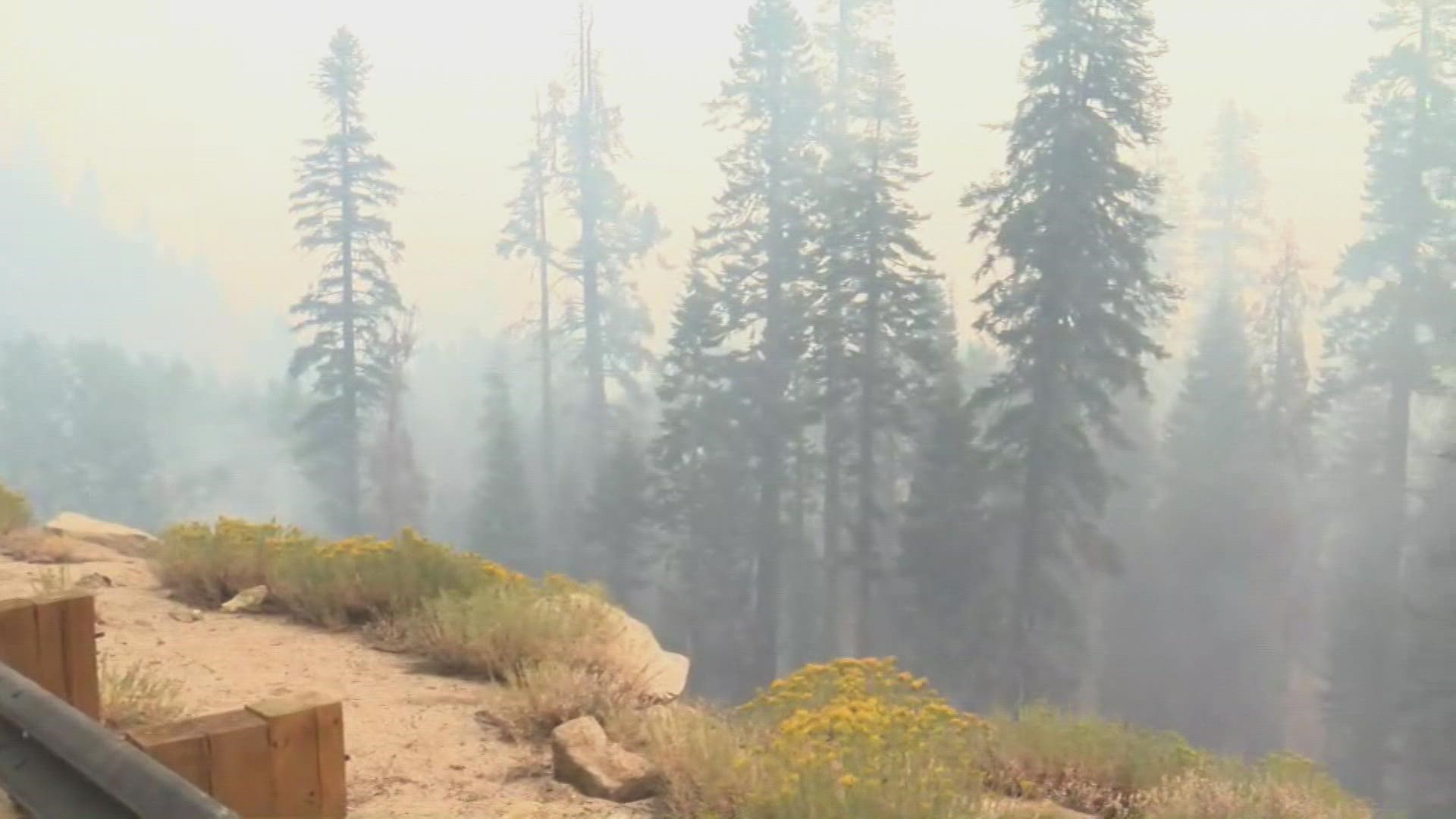DAVIS, Calif. — As wildfires continue to rage every year in California, respiratory experts' concern is growing about the impacts of smoke. Particularly, they have concerns when it comes to the smoke released from destructive fires that burn down entire neighborhoods.
"Our concern becomes even greater since the burning of a structure with plastics and all sorts of different types of material within the home -- carpets, paints, linoleum -- create a very unique type of pollution in the air," said Kent E. Pinkerton, Ph.D., who is the director of the Center for Health and the Environment at University of California, Davis.
Pinkerton and his colleagues have been looking at the effects of wildfire smoke over the past few years and were especially alarmed at what they found during the 2018 Camp Fire that burned the town of Paradise.
During the time of the fire, they measured the air quality in Davis, which is around 100 miles away, and found the presence of phthalates.
"Phthalates are basically plastics and other materials that have burned and now have become airborne and are found in the atmosphere," said Pinkerton.
While Pinkerton said they're continuing to study what happens when we breathe air with phthalates and don't currently know the full implications, they discovered them to be "at very high levels during the Paradise wildfire event" as well as for several days after.
Pinkerton is worried that breathing air with phthalates may have implications on certain groups like young children, the elderly, and those who have cardiorespiratory problems. But he said new studies show this type of air could possibly have greater consequences.


"We have actually just completed a study here at UC Davis at our primate center in which we found that monkeys who were exposed during the peak of their breeding season to wildfire smoke from Paradise demonstrated a small, but significant reduction in birth outcome," said Pinkerton.
He said the study showed some monkeys that were confirmed pregnant and were subject to air following the Paradise wildfire never gave birth.
"[There was] a significant reduction in birth outcomes, about 5%, compared to the past eight years of watching the breeding season of our colony at the primate center," said Pinkerton.
Pinkerton said researchers across California who are studying air quality and air conditions have a great concern with the increasing number and duration of fires and that in their research, they're trying to build a better understanding of the impacts of smoke from wildfires.
"If we can better understand that, then we can perhaps be more prepared for determining how to minimize the risk of being exposed to particles," said Pinkerton. "We're still going to advocate when the air quality index is about 151, that's an unhealthy condition for all individuals and the best advice we can possibly give is to stay indoors and be in areas where you have proper filtration of the air."
Continue the conversation with Andie on Facebook.

